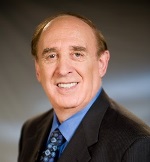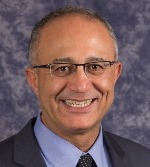The Connected Future Business Culture:
The Great Project Management Accelerator
SERIES ARTICLE
By Dr. Harold Kerzner
Senior Executive for Project Management
The International Institute for Learning (IIL)
New York and Florida, USA
and
Dr. Al Zeitoun, PgMP, PMI Fellow
Global Future of Work Executive
Siemens DISW
Ohio and Maryland USA
Introduction
When we look at the words project management, our minds could still take us to a place where rigor, structure, and control processes prevail. The last decade has altered much of our conviction about what great project management is. We learned a lot about what no longer works, the true definitions of what good looks like, and the qualities of the person whom we might still give the title project manager. The next decade is the most critical test for this profession that many authors and practitioners admire and believe in its impact.
This look ahead requires us to build on the learnings of this past decade. The unprecedented reliance on digitization, the intense collaborative working from every possible corner of the universe, the shift in the ways of working and frameworks, and the understanding of the impact of projects and programs on creating change, have opened a new page for experimenting with the role of the project manager. Is that role truly about managing, is it about leading, is it about both, or is it an emerging set of ingredients that should be categorized differently and given new naming. The evidence of organizational excellence continues to center on practices that agree to a set of principles, focus on execution, use a higher trust currency, and realize the unlimited potential of projects in this project economy for making sustainable changes stick.
The reinvention of the project manager is upon us and requires a degree of commitment to rebuilding the future organization to be the strategic, innovative, and learning community it will have to become for meaningful and sustainable strategic successes to prevail.
Forecasting Changes to the Role of the Project Manager
When we combine the words ‘forecasting’ and ‘project management’, we envision a process of making predictions or assumptions on the possible outcomes of a project. We perform an analysis of historical project data as well as guesses on future outcomes to determine the duration, cost, and performance at project completion.
Project forecasting is done continuously and on every project. What companies fail to do is to forecast what the role of the project manager will be in the future based upon the major changes identified in the project management community of practice or changing roles within the organization.
Past success in project management is no guarantee of future performance. The management guru, Peter Drucker, often used the term, “The Failure of Success,” where companies become so successful at what they are doing that they refuse to challenge the results and the accompanying processes to see if it can be accomplished better in the future.
Drivers for Role Change
Forecasting major changes to the role of the project manager must begin with an understanding of the drivers that will necessitate that changes expected to take place.
Some of the drivers for role changes include the need for the project manager to:
- Manage new types of projects
- Design and select new types of methodologies for the new types of projects
- Make business as well as technical decisions
- Select new types of metrics for the new decisions required
- Use information warehouses, business intelligence systems and digital technologies
Developing new types of project leadership skills and being able to collaborate with all stakeholders more effectively, will shape the DNA of the future project manager. One of the biggest mistakes executives still make is limiting their views of what project managers are capable of achieving for their organizations strategically. The traditional tactical view of projects’ value has shifted to strategic value in most of the world organizations that have exemplified a pattern of consistent growth. These organizations now holistically measure what matters and thus understand the shifts in the role of the project managers that gets them there.
More…
To read entire paper, click here
How to cite this paper: Kerzner, H. and Zeitoun, A. (2022). The Reinvention of the Project Manager: The Great Project Management Accelerator series, PM World Journal, Vol. XI, Issue XI, November. Available online at https://pmworldlibrary.net/wp-content/uploads/2022/11/pmwj123-Nov2022-Kerzner-Zeitoun-reinvention-of-the-project-manager-series-6.pdf
About the Authors

Harold Kerzner, Ph.D., MS, M.B.A
Senior Executive Director for Project Management
International Institute of Learning
New York & Florida, USA
![]()
Dr. Harold Kerzner is Senior Executive Director for Project Management for the International Institute for Learning (IIL). He has an MS and Ph.D. in Aeronautical and Astronautical Engineering from the University of Illinois and an MBA from Utah State University. He is a prior Air Force Officer and spent several years at Morton-Thiokol in project management. He taught engineering at the University of Illinois and business administration at Utah State University, and for 38 years taught project management at Baldwin-Wallace University. He has published or presented numerous engineering and business papers and has had published more than 60 college textbooks/workbooks on project management, including later editions. Some of his books are (1) Project Management: A Systems Approach to Planning, Scheduling and Controlling; (2) Project Management Metrics, KPIs and Dashboards, (3) Project Management Case Studies, (4) Project Management Best Practices: Achieving Global Excellence, (5) PM 2.0: The Future of Project Management, (6) Using the Project Management Maturity Model, and (7) Innovation Project Management.
He is a charter member of the Northeast Ohio PMI Chapter.
Dr. Kerzner has traveled around the world conducting project management lectures for PMI Chapters and companies in Japan, China, Russia, Brazil, Singapore, Korea, South Africa, Canada, Ireland, Germany, Spain, Belgium, Poland, Croatia, Mexico, Trinidad, Barbados, The Netherlands, Sweden, Finland, Venezuela, Columbia, United Arab Emirates, France, Italy, England, and Switzerland. He delivered a keynote speech at a PMI Global Congress on the future of project management.
His recognitions include:
- The University of Illinois granted Dr. Kerzner a Distinguished Recent Alumni Award in 1981 for his contributions to the field of project management.
- Utah State University provided Dr. Kerzner with the 1998 Distinguished Service Award for his contributions to the field of project management.
- The Northeast Ohio Chapter of the Project Management Institute gives out the Kerzner Award once a year to one project manager in Northeast Ohio that has demonstrated excellence in project management. They also give out a second Kerzner Award for project of the year in Northeast Ohio.
- The Project Management Institute (National Organization) in cooperation with IIL has initiated the Kerzner International Project Manager of the Year Award given to one project manager yearly anywhere in the world that demonstrated excellence in project management.
- The Project Management Institute also gives out four scholarships each year in Dr. Kerzner’s name for graduate studies in project management.
- Baldwin-Wallace University has instituted the Kerzner Distinguished Lecturer Series in project management.
- The Italian Institute of Project Management presented Dr. Kerzner with the 2019 International ISIPM Award for his contributions to the field of project management.
Dr. Harold Kerzner can be contacted at hkerzner@hotmail.com

Dr. Al Zeitoun, PgMP, PMI Fellow
Global Future of Work Executive
Siemens DISW
Ohio & Maryland USA
![]()
Dr. Al Zeitoun is a Future of Work, business optimization, and operational performance excellence thought leader with global experiences in strategy execution. His experiences encompass leading organizations; delivering their Enterprise Digital and Business Transformation; guiding fitting frameworks implementations; and using his empathy, engineering insights, and collaboration strengths to successfully envision new business models and execute complex missions across diverse cultures globally.
In his current role with Siemens, he is a Senior Director of Strategy responsible for driving the global program management practices, Master Plan governance, and enabling the Strategy Transformation processes and priorities.
In his position, as the Executive Director for Emirates Nuclear Energy Corporation, Abu Dhabi, UAE, he was responsible for creating the strategy execution framework, achieving transformation benefits, governance excellence, and creating the data analytics discipline necessary for delivering on the $40B complex country energy mission roadmap.
At the McLean, USA HQ of Booz Allen Hamilton, Dr. Zeitoun strategically envisioned and customized digitally enabled EPMO advisory, mapped playbooks, and capability development for clients’ Billions of Dollars strategic initiatives. Furthermore, he led the firm’s Middle East North Africa Portfolio Management and Agile Governance Solutions.
With the International Institute of Learning, Dr. Zeitoun played a senior leader and global trainer and coach. He was instrumental in driving its global expansions, thought leadership, and operational excellence methodology to sense and shape dynamic ways of working across organizations worldwide. He speaks English, Arabic, and German and enjoys good food, travel, and volunteering. Dr. Al Zeitoun can be contacted at zeitounstrategy@gmail.com









